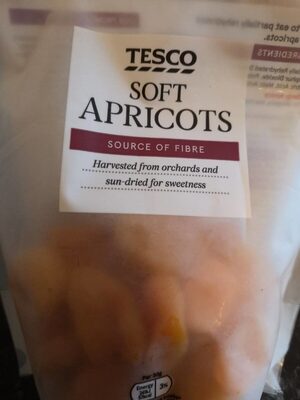Soft apricots - Tesco
This product page is not complete. You can help to complete it by editing it and adding more data from the photos we have, or by taking more photos using the app for Android or iPhone/iPad. Thank you!
×
Barcode: 5031021361226 (EAN / EAN-13)
Brands: Tesco
Categories: en:Plant-based foods and beverages, en:Plant-based foods, en:Fruits and vegetables based foods, en:Fruits based foods, en:Dried products, en:Dried plant-based foods, en:Dried fruits, en:Dried apricots
Stores: Tesco
Countries where sold: An Rìoghachd Aonaichte
Matching with your preferences
Environment
Carbon footprint
Packaging
Transportation
Report a problem
Data sources
Product added on by kiliweb
Last edit of product page on by amanda76.
Product page also edited by hungergames, moon-rabbit, openfoodfacts-contributors, roboto-app, scanbot, tacite-mass-editor, teolemon, yuka.VjRKZUlaMGltS2t0bVBFa3dEVFc5NGhyeTVTdmIwcUhHdlkrSVE9PQ.








